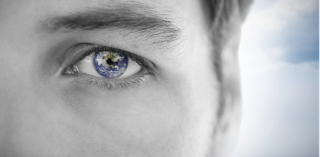
Brain injury recovery often centers on rest and, if necessary, rehabilitation. However, a vital yet neglected part of recovering from a brain injury is tending to your emotional and psychological recovery. This is something most doctors in both conventional and alternative medicine overlook simply because they don’t have the training, knowledge, or resources.
In addition to neurological symptoms, many people who have sustained a brain injury or concussion struggle with residual trauma, depression, isolation, and other outcomes that can profoundly alter your sense of self.
Recovering from a brain injury means you may suddenly be cut off from doing the things you love, isolated from your friends, coworkers, teammates, or fellow troops, or no longer able to do the things that gave your life a sense of meaning and purpose.
Additionally, brain injury and concussion can make you extremely sensitive to lights, sounds, crowds, and busy environments, making trips out of the house overwhelming and exhausting.
A brain injury can alter mood and personality so that you may be more prone to a short temper, crying, anxiety, panic attacks, or emotional outbursts that you feel are embarrassing or will alarm or hurt others.
Your overall health and gut function may be much worse so that you have symptoms of irritable bowel syndrome and are afraid to venture too far from an available toilet.
It’s common for a brain injury to be intertwined with post-traumatic stress disorder (PTSD), which adds even more difficulties to the plate.
Some brain injury victims may have survivor’s guilt if others died, lost limbs, or were hurt more severely. Unlike an amputation or injury elsewhere in the body, we can’t “see” a brain injury and hence some people believe they don’t deserve to feel so poorly, or that they are not as bad off as others.
All these sudden and drastic changes can lead people struggling with a brain injury to become increasingly depressed, anxious, isolated, and disconnected from their friends and family. The mood and personality changes that accompany some brain injuries only perpetuate the downward spiral of anger, loss of self-worth, and a negative outlook.
Science shows such inward negativity is highly inflammatory and only slows or hinders the ability of the body and the brain to heal.
Counseling or psychotherapy vital to brain injury or concussion recovery
For these reasons, it’s vitally important you tend to your emotional and psychological well being. Doing so will actually boost your recovery and speed your return back to normal life thanks to the influence of both internal and external positive forces on our ability to heal and recover.
Many brain injury survivors look back on the recovery period as a rite of passage that forced them to examine their priorities, sense of self, life purpose and direction, and boldly move forward in a meaningful direction.
Partnering with other brain injury survivors can help ease the burden, pull you out of isolationism, and help forge lasting bonds with other people.
In fact, science shows isolation is worse for your health than smoking or obesity and that connecting socially (in person) with others improves immunity, healing, and mental health.
If you’re working to recover from a brain injury, functional neurology utilizes key strategies to improve the neurological and chemical state of your brain. However, don’t ignore the inner “you;” seeking counseling or psychotherapy can be a vital part of your recovery process.



Latest from the Blog
Autoimmune Disease Management with EBOO Therapy
July 17, 2024Autoimmune diseases, characterized by the immune system attacking the body’s own tissues, present significant challenges in treatment and management. Extracorporeal Blood Oxygenation and Ozonation (EBOO) therapy offers a promising adjunctive approach to managing autoimmune conditions. Functioning similarly to a dialysis machine, EBOO filters the blood to remove toxins and pathogens that may trigger autoimmune responses. […] Read more
Latest from the Blog
Detoxification and EBOO Therapy: Optimizing Cellular Health
Detoxification plays a crucial role in maintaining optimal health in today’s toxin-laden environment. Extracorporeal Blood Oxygenation and Ozonation (EBOO) therapy offers a sophisticated approach to detoxifying the bloodstream and enhancing overall well-being. Operating similarly to a blood filtration system, EBOO effectively removes toxins, pesticides, and chemicals that accumulate in the body, supporting the body’s natural […] Read more